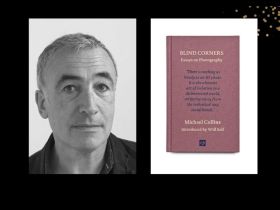A depiction of Sappho on an Attic red-figure vase, c. 470 BC. Image: Wikimedia Commons.
Sappho, a Greek lyric poet who died circa 570 BC, was greatly admired by her contemporaries, but today only a handful of her poems survive.
Now two new works by Sappho have been identified after the owner of an ancient papyrus consulted Oxford classicist, Dr Dirk Obbink, about the significance of the document.
According to Obbink, in an article to be published in the journal Zeitschrift für Papyrologie und Epigraphik later this year, the poems, preserved on what is probably third-century AD papyrus from the Egyptian city of Oxyrynchus, are ‘indubitably’ by Sappho.
The complete poem’s contents match up with elements of Sappho’s family life which were already known to scholars, he said; equally importantly, their metre and dialect also point to Sappho’s authorship.
‘The new Sappho is absolutely breath-taking,’ said Albert Henrichs, a Harvard classics professor who examined the papyrus with Dr Obbink. ‘It is the best preserved Sappho papyrus in existence, with just a few letters that had to be restored in the first poem, and not a single word that is in doubt.’
Although Sappho was reputed to have written nine volumes of poetry, only one complete poem by her was previously known to survive, along with substantial remnants of four others. One of those four was substantially recovered in 2004, also from a scrap of papyrus. The new find adds a sixth poem – apparently about her brothers – to the body of Sappho’s surviving work, and suggests that similar such discoveries may yet be possible in the future.
Fragments of a seventh poem, an address to the goddess Aphrodite possibly concerning unrequited love, were also discovered alongside the complete work.
Australian playwright Dr Jane Montgomery Griffiths, author of Sappho… in 9 Fragments and the head of Monash University’s Centre for Theatre and Performance Studies, said she was thrilled by the discovery.
‘For me, the discovery of new fragments of Sappho is exciting as much for showing us how much more of her there is to be found as it is for throwing new light on an historical Sappho, or learning biographical details about her family relationships. The allure of Sappho is her provocative combination of lines and lacunae. So little of her work remains that what does sings with an intensity in its fragmented form that is perhaps even more resonant than if we had her complete. Her fragmentation provides us with the imaginative void in which we construct our own fantasies about both past and present desire,’ Griffiths told ArtsHub.
Poet, critic and novelist Alison Croggon also welcomed the discovery.
‘Sappho is the most prominent of the Archaic lyric poets in ancient Greece. We know very little of her work, so to discover a complete poem is extraordinarily exciting,’ she said.
‘Her work has been revered for millennia, even though most of it has survived in fragments. Over the centuries, poets from Catullus to Anne Carson have translated her poems, and her lyric still has the capacity to speak directly to a contemporary reader. I always liked Robert Graves’s story about asking his Greek professor at Oxford whether Sappho was really as good as people said. “Yes, Graves, that’s the problem,” he answered. “She’s very, very good.”’





